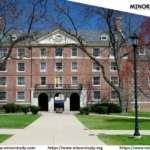🏥 Introduction: A Pillar of Hope in Indian Medical Education
PGIMER: In the vibrant city of Chandigarh lies one of India’s most prestigious and trusted medical institutions—Post Graduate Institute of Medical Education & Research (PGIMER). A name synonymous with excellence, research, and compassionate care, PGIMER stands as a beacon of medical advancement and healthcare equity in India.
- 🕰️ Historical Background: Foundation Rooted in National Development
- 📚 What PGIMER Offers Today
- 📊 Amazing Facts About PGIMER Chandigarh
- 🗓️ Timeline: PGIMER’s Journey Through the Years
- 💡 Significance of PGIMER: More Than Just an Institute
- 🎓 1. Education that Saves Lives
- 🧪 2. Research that Impacts Policy
- ❤️ 3. Affordable Healthcare
- 🌐 4. Community and Global Impact
- 🧑⚕️ Daily Life Impact: Why PGIMER Matters to You and Me
- 💬 Most Asked Questions (FAQs)
- ❓1. What does PGIMER stand for?
- ❓2. Is PGIMER only for postgraduates?
- ❓3. Can common people get treatment at PGIMER?
- ❓4. How to get admission in PGIMER?
- ❓5. Is PGIMER better than AIIMS?
- ❓6. What facilities are available at PGIMER?
- 🎉 Observance and Traditions at PGIMER
- 🌟 Wishing Future Healthcare Warriors
- 📌 Key Takeaways
- 🧠 Conclusion: PGIMER—A Temple of Healing and Knowledge
Founded with the vision of providing world-class education and healthcare, PGIMER today is not just a hospital or a college—it’s a lifeline for millions across the country. Let’s dive into its history, achievements, societal role, and why it holds an unshakable position in the Indian medical landscape.
🕰️ Historical Background: Foundation Rooted in National Development
The foundation of PGIMER was laid in 1960, as a part of Pandit Jawaharlal Nehru’s vision to develop centers of excellence in India’s newly independent healthcare infrastructure.
Key Milestones:
1960: PGIMER was established with assistance from Prime Minister Nehru and the Government of Punjab.
1962: Started functioning and admitted its first batch of postgraduates.
1980s-90s: Expanded rapidly to include super-specialties and research departments.
2008: Declared an Institute of National Importance by the Government of India.
Present: Offers undergraduate, postgraduate, doctoral, and super-specialty programs, serving millions of patients annually.
📚 What PGIMER Offers Today
Medical Courses: MD, MS, MCh, DM, PhD, MDS, BSc Nursing, MSc Nursing, and more.
Research: Recognized as one of the top institutes for biomedical research in India.
Healthcare: Over 30 clinical departments, with 24/7 emergency care and specialized tertiary healthcare.
Community Outreach: Regular health camps, rural clinics, and public health programs.
📊 Amazing Facts About PGIMER Chandigarh
Serves over 30 lakh patients annually from across India and neighboring countries.
Home to over 600 faculty members and more than 900 resident doctors.
Houses India’s first fully digital medical library.
Provides organ transplantation, cancer care, genetic testing, and robotic surgery.
Offers cashless treatment for numerous government healthcare schemes.
Ranked among India’s top 3 medical institutions for postgraduate studies.
Associated with WHO and ICMR for health policy research and implementation.
Campus includes Nehru Hospital, Advanced Eye Center, Advanced Cardiac Centre, and more.
PGIMER’s organ transplant program is among the most successful in Asia.
Strong focus on infectious diseases, maternal health, and rural healthcare.
Offers cutting-edge treatment at nominal costs.
Trains some of the most skilled doctors, researchers, and nurses in the country.
🗓️ Timeline: PGIMER’s Journey Through the Years
| Year | Milestone |
|---|---|
| 1960 | PGIMER established |
| 1962 | First batch of PG students admitted |
| 1977 | Nehru Hospital inaugurated |
| 1994 | Advanced Eye Centre launched |
| 2008 | Declared an Institute of National Importance |
| 2023 | PGIMER ranked among top Indian institutions by NIRF |
💡 Significance of PGIMER: More Than Just an Institute
🎓 1. Education that Saves Lives
PGIMER trains hundreds of top-tier specialists annually, ensuring the supply of expert doctors and nurses throughout India, especially in rural areas.
🧪 2. Research that Impacts Policy
From public health breakthroughs to genetic research, PGIMER has shaped national health guidelines and contributed extensively to WHO-led projects.
❤️ 3. Affordable Healthcare
With subsidized treatment, free services, and cashless schemes, PGIMER ensures that no one is turned away due to lack of money.
🌐 4. Community and Global Impact
PGIMER’s outreach clinics and public education campaigns have improved rural maternal health, TB control, and diabetes awareness.
🧑⚕️ Daily Life Impact: Why PGIMER Matters to You and Me
PGIMER isn’t just for medical professionals. It plays a role in all our lives:
The vaccine your child gets? Possibly researched or tested at PGIMER.
That life-saving surgery your relative needed? PGIMER doctors may have pioneered the technique.
Policies that protect pregnant women or prevent pandemics? PGIMER data likely shaped them.
Thousands of doctors trained at PGIMER now serve in government hospitals, clinics, and private care across India.
It’s a medical institution that directly and indirectly touches millions of lives daily.
💬 Most Asked Questions (FAQs)
❓1. What does PGIMER stand for?
PGIMER stands for Post Graduate Institute of Medical Education & Research, Chandigarh.
❓2. Is PGIMER only for postgraduates?
Primarily, yes. But it also offers undergraduate and super-specialty courses, especially in nursing and paramedical sciences.
❓3. Can common people get treatment at PGIMER?
Absolutely. It serves the general public, and treatments are often free or subsidized.
❓4. How to get admission in PGIMER?
Entrance exams like INI-CET (for MD/MS), INI-SS (for DM/MCh), and PGIMER Nursing entrance are required.
❓5. Is PGIMER better than AIIMS?
Both are Institutes of National Importance and excel in different areas. PGIMER is renowned for clinical practice, surgical training, and affordability.
❓6. What facilities are available at PGIMER?
State-of-the-art ICUs, transplant centers, trauma units, robotic surgery, diagnostics, and even psychological care.
🎉 Observance and Traditions at PGIMER
PGIMER proudly celebrates:
Founder’s Day in July.
International Nurses Day, honoring its vast nursing community.
World Health Days with outreach camps and public seminars.
Annual convocations and research conclaves that attract national leaders.
These observances reaffirm PGIMER’s commitment to holistic healthcare and community empowerment.
🌟 Wishing Future Healthcare Warriors
To the aspirants dreaming of wearing that white coat at PGIMER:
“Let compassion be your compass and science your sword. At PGIMER, you don’t just study medicine—you practice humanity.”
May your journey be filled with breakthroughs and blessings.
📌 Key Takeaways
PGIMER, Chandigarh was established in 1960 and has since become a nationally and globally respected institute.
It provides education, research, and healthcare under one roof.
Offers free or low-cost healthcare to the public with cutting-edge facilities.
Plays a crucial role in rural and national health policy.
A place where medicine meets mission—serving not just cities but villages, not just India but the world.
🧠 Conclusion: PGIMER—A Temple of Healing and Knowledge
The Post Graduate Institute of Medical Education & Research is not merely a structure of concrete and corridors. It is a temple of healing, a laboratory of discovery, and a university of empathy. For over six decades, PGIMER has stood tall as a guardian of life, a cultivator of knowledge, and a healer of the soul.
Whether you’re a patient, a student, a policymaker, or an ordinary citizen—you’ve felt PGIMER’s presence, even if you didn’t know its name.
It continues to shape India’s medical future, silently and selflessly—saving lives, educating minds, and serving humanity.








